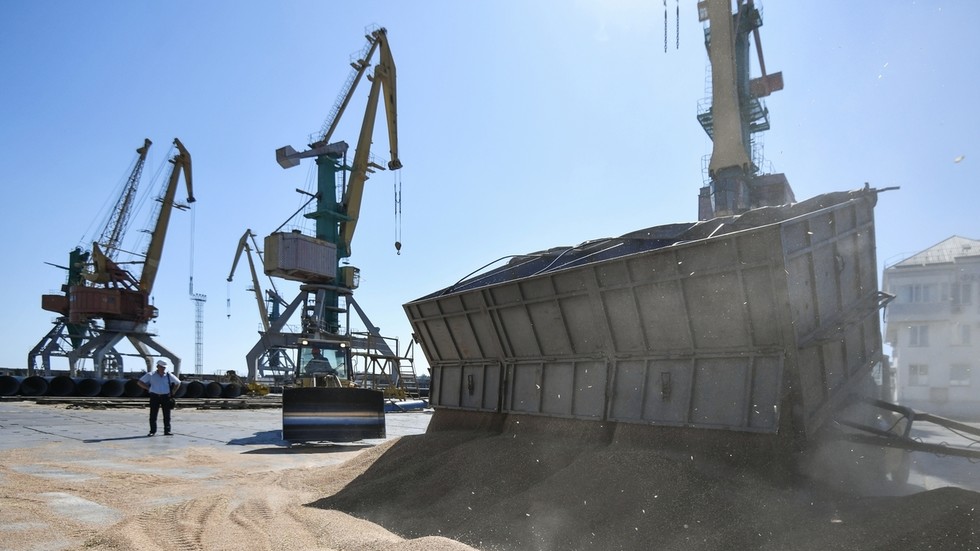
Further navigation through the route is impossible because Kiev uses it for military operations against Russia, Moscow has said

FILE PHOTO. © Sputnik / Konstantin Mikhalchevsky
The Russian military closed the so-called “grain corridor” used to ship Ukrainian agriculture products through the Black Sea on Monday. The move was provoked by the actions of Ukraine, which used the route to launch attacks on Russia, the Russian Defense Ministry said.
“Any navigation through the security corridor designated under the Black Sea [grain shipment] initiative would be halted until the situation around the Ukrainian … terrorist attack on the military and civilian vessels in Sevastopol is cleared,” the Russian Defense Ministry said in a statement.
The ministry also said that Kiev should specifically commit not to use the corridor for military purposes. At the same time, it maintained that Russia does not withdraw from the deal but only suspends it for an indefinite period of time.
Any navigation through the “corridor” would be halted “until the situation with the Ukrainian terrorist attack against the military and civilian vessels in Sevastopol” was cleared, the defense ministry said in a statement. The ministry also said that Kiev should commit to not using the corridor for military purposes. At the same time, it maintained that Russia had not withdrawn from the deal but merely suspended it for an indefinite period of time.

Read more
Earlier on Monday, Kremlin spokesman Dmitry Peskov said that Russia was ready to compensate for the missing Ukrainian grain exports to the poorer nations from its own stocks. He also warned that the grain deal has become “much more risky, dangerous” now since Russia cannot guarantee maritime security in the waters of the designated grain corridor.
Russia is “still in contact” with other parties, including the UN and Türkiye, Peskov said, adding, however, that Moscow was not ready to be talked into resuming its participation in the deal.
A dozen ships carrying Ukrainian grain were cleared to leave Turkish ports earlier on Monday. The Joint Coordination Centre (JCC) in Istanbul agreed on a plan to inspect a further 40 ships, despite Moscow’s decision to suspend the deal. It is unclear whether it will follow on its plan now.




